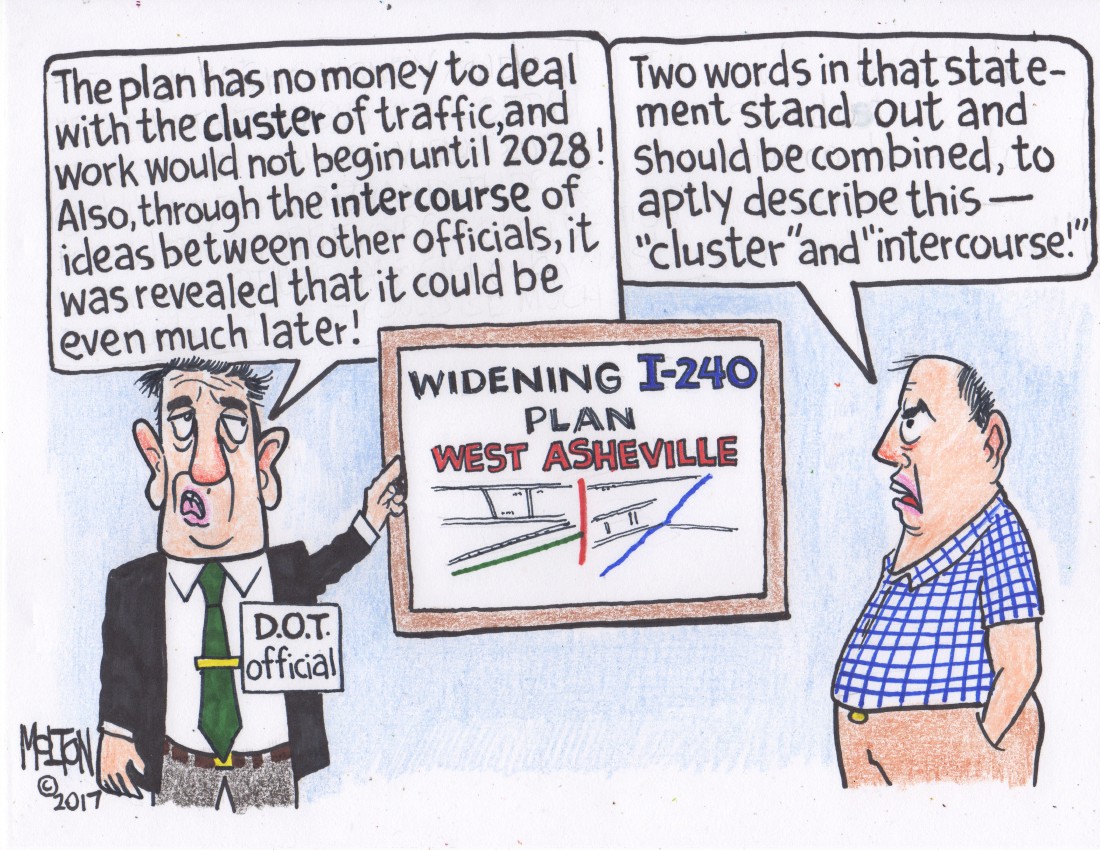Asheville, N.C.
Sounds messy


Asheville, N.C.
We share your inclination to get the whole story. For the past 25 years, Xpress has been committed to in-depth, balanced reporting about the greater Asheville area. We want everyone to have access to our stories. That’s a big part of why we've never charged for the paper or put up a paywall.
We’re pretty sure that you know journalism faces big challenges these days. Advertising no longer pays the whole cost. Media outlets around the country are asking their readers to chip in. Xpress needs help, too. We hope you’ll consider signing up to be a member of Xpress. For as little as $5 a month — the cost of a craft beer or kombucha — you can help keep local journalism strong. It only takes a moment.
Before you comment
The comments section is here to provide a platform for civil dialogue on the issues we face together as a local community. Xpress is committed to offering this platform for all voices, but when the tone of the discussion gets nasty or strays off topic, we believe many people choose not to participate. Xpress editors are determined to moderate comments to ensure a constructive interchange is maintained. All comments judged not to be in keeping with the spirit of civil discourse will be removed and repeat violators will be banned. See here for our terms of service. Thank you for being part of this effort to promote respectful discussion.
“The plan has no money…”
The two words I’m on the lookout for with this AND the I-26 widening are: “tolls” and “privatized”.
Me too. More user fees such as tolls and congestion pricing would help pay for needed improvements and encourage people to find alternative forms of transportation.
More user fees such as tolls and congestion pricing would… encourage people to find alternative forms of transportation.”
Are there any studies out there demonstrating that this actually happens? All I can find are unsupported assertions from toll-related professional advocates.
More user fees such as tolls and congestion pricing would help pay for needed improvements
The “help pay for” part of that is a little tricky too. Look at how the State and it’s taxpayers are being “helped” by the I-77 HOT lanes widening, for example. A huge amount of the “cost” is going towards building out the tolling infrastructure itself – separate lanes at each intersection for those getting into HOT lanes vs. free lanes, etc..
And whatever amount the State is “saving” by giving the foreign-owned Cintra a practically-no-bid contract to fleece motorists in that region for 50 years, is lost by all that money leaving the US. We should keep our infrastructure money here. But all the biggest privatized toll companies are foreign-owned. And they have better lawyers writing those contracts than we do. Recent history is littered by ungodly amounts of taxpayer money being shoveled onto these foreign private companies, even as their ‘projects’ go bankrupt. As in the I-77 project, if your hoped-for decline in road usage occurs, the State is liable for making up the difference in profits – ie., paying them an extra $75 million annually.
http://wideni77.org/2015/07/how-cintra-makes-money/
I can’t really attest to the issues with private funding but it would seem to me given our national debt and knowing how many roads our government built since the 50’s I would say taxpayers have been burdened by the public funding of our roadways also. And I am sure there were plenty of examples of graft and corruption on the part of the American companies that built these roads. All I know is that the automobile has become a burden on society and it’s time it took a backseat to other more sustainable and safer modes of transit. Many City leaders around the world and in the US understand this also and have begun reducing the need for an automobile by providing alternatives and by charging motorist more to drive. Given that the cars kills and injures millions of people every year, significantly contributes to the obesity epidemic, and pollutes our environment it only make sense that drivers be charged more.